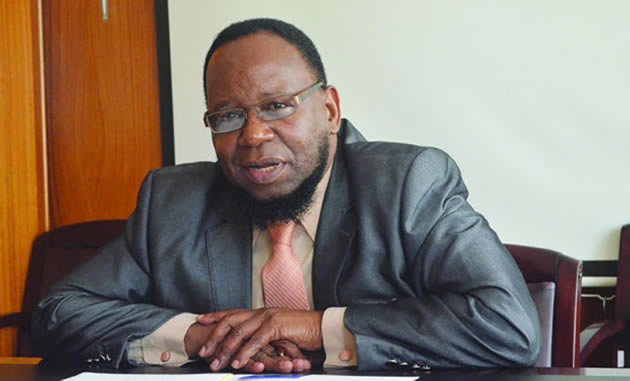Strong institutions key in fight against corruption
Christopher Farai Charamba Correspondent
Quis custodiet ipsos custodes? – Who will guard the guards? This Latin phrase is adopted from the work of the 1st century poet and satirist Juvenal. In its original context it referred to an issue of infidelity within a marriage, questioning who will watch over the immoral activities of the wife if the husband is equally or more so corruptible? The phrase has since been appropriated in varying capacities in the modern era. Political philosophers have used it to posit the issue of governance and power. Who is meant to watch over those who govern? Where is their power derived from? How much power do they possess and how is it kept in check?
Consent of the governed is an important instrument in modern political formations. In most scenarios, bar a few, without the consent of the people a government is considered illegitimate particularly in a democracy. This is why activities such as elections are very important as they provide that consent necessary for a government to be legitimised.
Once that consent has been provided, it does not give the government the licence to rule unilaterally as, say, a monarch would do. Who will guard the guardians then becomes an important question. The government will find that it has a moral obligation to govern justly sans tyranny.
The problem of how power can be held to account has long troubled many philosophers.
Plato, a believer in the idea of a philosopher king, optimistically regarded guardians as needing no oversight. In the Republic, Socrates goes on to state that the best person “has a divine ruler within himself”, and that “it is better for everyone to be ruled by divine reason, preferably within himself and his own, otherwise imposed from without”.
This view is somewhat naïve particularly in modern society. It is certainly optimistic to expect that each man would stay noble, disciplined and modern needing no entity watching over him to ensure he remains morally upright.
It is for this very reason that certain institutions are created as a means of providing oversight and keeping people and other institutions in check.
The concept of separation of powers is founded on this premise. The executive should be independent of the judiciary which should be independent of the legislature. Each should ensure that the other does not abuse its office and use their mandated channels to do so.
A good example of this has been South Africa where President Jacob Zuma and his executive have come under fire over the Nkandla issue. Opposition parties in parliament used their constitutional right to bring the case to the courts and the courts impartially ruled in their favour without interference from the executive.
In this instance the oversight worked and there were guards to guard the guards.
Unfortunately, this is not always the case. Those tasked with maintaining a certain moral standard have found themselves on the wrong side of that standard. The Zimbabwe Anti-Corruption Commission is testament to this.
Recently four managers at the ZACC were suspended for allegedly engaging in corrupt activities. This follows on from the arrest and imprisonment for the former ZACC CEO Ngonidzashe Gumbo, who was found to have defrauded the Commission of $435 000.
The very people who were tasked with providing oversight against corruption are found to be corrupt.
Glaucon in conversation with Socrates stated that,“it would be absurd that a guardian should need a guard”. From the evidence at the ZACC it would be absurd for guardians not to have guards.
In fact, the whole scenario is absurd and tragic. Zimbabwe finds itself with a serious and growing corruption problem. The Office of the Auditor-General, another oversight body, has time and time again exposed various Government ministries, departments and parastatals as having deep corruption issues.
The problem is that these issues are not dealt with swiftly, effectively and sufficiently. Aside from the case of ZACC’s Gumbo, who was arrested and imprisoned for his corrupt activies, many other individuals have gotten away with it despite it being exposed and even making it to the press.
Then there are the cases which though raised are not investigated, the guards failing to guard. There needs to be a coordinated effort between certain institutions such as the Office of the Auditor-General, the ZACC and the Office of the Prosecutor-General to ensure that cases of corruption are dealt with promptly.
These bodies should operate independently with full separation of powers. There should be no sacred cows and no attempts to subvert justice. It is essential that this happens if there is to be any development in Zimbabwe going forward.
The African Development Bank states that, “Africa must, in addition, redouble efforts to build efficient, resilient and capable states — founded on functioning institutions — which have key roles in private sector-led growth . . . it has to strengthen regulatory, institutional and financial frameworks, leading to more effective rule of law and reduced corruption.
Strong institutions build a strong state. It is imperative that oversight institutions be strong and carry out their duties meticulously. The fight against corruption in Zimbabwe needs strong institutions. The guards must realise their responsibility and obligation to the people who have given them their consent to be governed.
The late Burkinabe leader Thomas Sankara once said: “You cannot carry out fundamental change without a certain amount madness… it comes from non-conformity, the courage to turn your back on the old formulas, the courage to invent the future… we must dare to invent the future.”
In the fight against corruption in Zimbabwe the old formulas need to be thrown out and a more radical approach that deals with individuals and institutions needs to be taken in order to invent a brighter and developed future.









Comments